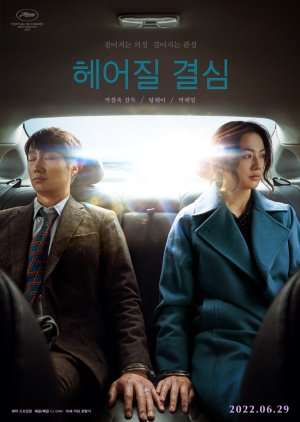
Jin Joo is a half-Korean and half-Vietnamese girl who marries a Korean man, Kang Jun Woo, in order to come to Korea to look for her biological father who abandoned her. The drama is not only about her searching for her dad but also about the cultural differences between her and her husband's family.
There is bad blood between the two families, Kim and Kang. The rivalry is even more fueled because Jun Woo's mother used to date Young Min's father but Young Min's mother stole him away from her. Kang Sae Mi is Jun Woo's sister and Kim Young Soo is Young Min's younger brother. They want to get married but both families oppose their marriage which leads to the two young lovers running away and living together.
There is bad blood between the two families, Kim and Kang. The rivalry is even more fueled because Jun Woo's mother used to date Young Min's father but Young Min's mother stole him away from her. Kang Sae Mi is Jun Woo's sister and Kim Young Soo is Young Min's younger brother. They want to get married but both families oppose their marriage which leads to the two young lovers running away and living together.

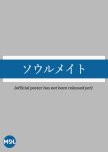

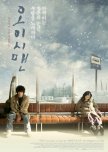
Singer Hyeon Seok develops problems with his hearing (Menieres syndrome) and has to stop his recordings. He notices a picture of Hokkaido in a magazine and decides to travel there. He eventually arrives in a a small village in Hokkaido for rest. While there, he reminisces about the old days. The owner of the inn offers him a Japanese meal. There he meets a bright cheerful girl named Megumi.
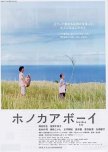

L, an angel who’s endlessly fascinated with the human world, gets into trouble when she unthinkingly saves the life of Han Shi Yeong, a man who was meant to die. To make up for her mistake she must guard him on Earth for one hundred days and keep him safe from Hwan, a death god who is required to collect his soul. Both supernatural beings must contend with the knowledge that whichever one of them fails by the end of the hundred days will be erased from existence, and the longer they stay on Earth the further their powers fade and the more human they become.

When his boss, Dae Jung, goes missing in a ship accident, the company sends Woo Joo to Osaka to finish his business. On his last day in the city, Woo Joo chases someone looking exactly like Dae Jung to Taisho, an area in Osaka. He ends up losing him, but the sound of a guitar draws Woo Joo to a small bar, Pier 34. Its owner, Snow, somehow reminds him of Dae Jung, and listening to his music brings back memories. After passing out right there, Woo Joo ends up missing his flight back to Korea. He quits his job on a whim and soon meets Haruna, who is learning how to play the guitar from Snow. Woo Joo decides to stay at Pier 34 until he finds Dae Jung and so begins an unlikely vacation for him.

33-year old Han Je In is a mystery novelist who is notorious for habitual false reporting to the police in town. Her only friend is police officer Rok Hwan, who has had a crush on her since childhood. One day, Je In hears a scream of help from an apartment upstairs and reports that a serial killer lives above her but no one believes her. Convinced that Jason, the handsome man living upstairs, is a serial killer, she asks Rok Hwan to help follow him around with her. But as she learns more about Jason in her pursuit to uncover the truth, she begins to fall for him. Seeing her in this state, Rok Hwan feels a tinge of jealousy.

Emilia, a Filipino who arrived in Japan with aspirations of becoming a model, coincidentally encounters Matsuyama Mirai, an aspiring photographer. Their connection deepens as they find themselves drawn to each other. Mirai, intent on immortalising their moments together, diligently captures their essence through the lens of his camera. However, an unexpected parting disrupts the flow of their narrative. Subsequently, the saga of these two individuals unfolds beyond the shores of Japan, traversing the vast sea to the Philippines, where their story takes on new dimensions.

Woo Hyun is a Korean man, and Haruka is a Japanese woman. They live different lives, but they both carry emotional scars from their first love. While looking for answers and hope, their fateful encounter will change their lives. It started with one message… Haruka, a stage actress in Seoul, has been in a slump ever since she broke up with her first love. She cannot forget him and keeps sending messages that go unread on LINE. Despite her emotional hurt, Haruka wants to believe in love. In Tokyo, Woo Hyun, an aspiring movie director, keeps on doing interviews concerning “love”. After being deeply hurt by his girlfriend, who thought about getting married, he no longer believes in love. Haruka and Woo Hyun have both grown timid of love. The two of them, who live apart in Tokyo and Seoul, have a chance encounter because of a LINE message delivered to Woo Hyun’s smartphone from Haruka. They exchange messages without knowing each other’s faces and are drawn to each other before they realise it

Kinda surprised no one recommended Late Autumn (2011) earlier... Both stories are completely different, but there are some similarities here and there.
Similarities
-same actress stars in both films
-(spoiler) forbidden relationship between a criminal, and an average guy
-there is a melancholic atmosphere in both films, and will make you sad/cry by the end
-(spoiler)both female leads are suspected/convicted of manslaughter
-both are tragedies in different ways
Differences
-the female lead in Late Autumn (2011) is clearly a good person just placed in unfortunate circumstances, while the female lead in Decision to Leave (2022) is more nefarious, and manipulative... It is clear that she is NOT to be trusted at all in that film.
- there is more of a mystery in Decision to Leave (2022) than Late Autumn (2011) about the female lead's character
-Late Autumn (2011) is more of a hopeful story than Decision to Leave (2022)... That could be my opinion tho
Similarities
-same actress stars in both films
-(spoiler) forbidden relationship between a criminal, and an average guy
-there is a melancholic atmosphere in both films, and will make you sad/cry by the end
-(spoiler)both female leads are suspected/convicted of manslaughter
-both are tragedies in different ways
Differences
-the female lead in Late Autumn (2011) is clearly a good person just placed in unfortunate circumstances, while the female lead in Decision to Leave (2022) is more nefarious, and manipulative... It is clear that she is NOT to be trusted at all in that film.
- there is more of a mystery in Decision to Leave (2022) than Late Autumn (2011) about the female lead's character
-Late Autumn (2011) is more of a hopeful story than Decision to Leave (2022)... That could be my opinion tho

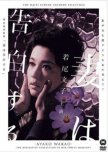
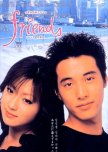
Left alone on a trip to Hong Kong, Tomoko, a sales woman from Japan finds herself the victim of a purse-snatching. The police arrest the man she points out, but it turns out to be the wrong person: a young Korean man named Ji Hoon. Despite his anger and humiliation, he takes her out to dinner since she has lost all her money, and in return, she agrees to model for his amateur film. What follows is a magical and romantic two days. Upon returning to their respective countries, Tomoko must return to her nine-to-five job and Ji Hoon must resume studying to join the family business rather than pursuing his dream of becoming a film director. But soon the two begin to email each other and rekindle their relationship despite the distance and obstacles between them. Marking the very first time in television history that a drama has been co-produced between Japan and South Korea, the story shows us that love has no borders.

